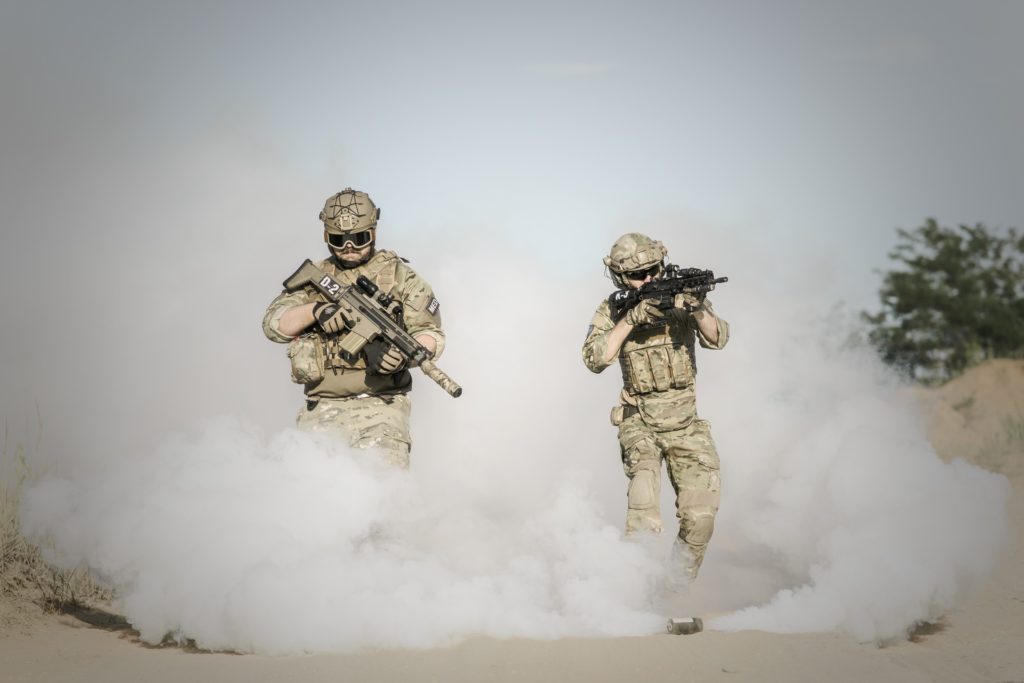
Over 625,000 veterans who are registered in the Veterans Health Administration (VHA), are diagnosed with a substance abuse disorder (SUD) [1].
Typically heavy drinking and alcohol-related issues also tend to be seen in younger service members and those returning from deployments that involve combat regions. US military members have higher rates of mental health issues [1].
Often depression, anxiety, post traumatic stress disorder, and other psychological issues are common among those military members who have been in combat zones.
Working with Members Who Are Abusing Substances
When working with individuals who have a SUD and comorbid disorders, it is important to consider both when developing a comprehensive treatment plan.
A parallel treatment approach is often used to address both disorders, but treatment is typically provided by different clinicians. Simply put, it is working on the alcohol addiction as well as any other comorbid issues simultaneously.
When using an integrated approach, the SUD and other mental concerns are addressed concurrently and found to be most successful. This approach is where treatment for all concerns is managed and provided by the same treatment team or clinician.
Special Considerations for Military Members
One special consideration for treating soldiers is including family in the treatment process. Research is beginning to support the inclusion of family in the therapeutic process and that it can increase the likelihood of recovery [1].
Psychoeducation to the sufferer and the family is important early on to help educate all members on what alcohol addiction is as well as its consequences.
Another consideration is therapy while the member is deployed or training away from the family or injured and unable to get to therapy services.

Telehealth which has been around since 2008 for the military, is a variety of devices that the military member can use in their home.
It includers videophones, video-telemonitors for face-to-face counseling.
A third special consideration when working with an active military member, reservist or veteran is that they may have a prior mental health record where they have been assessed or treated [2].
This knowledge is important for those entering alcohol addiction therapy as the clinical team can utilize the information to give the best care.
Why the Military is Susceptible to Abuse
Often with the military deployment into combat zones, and the culture of the military increase that members are at a higher risk for alcohol abuse than the general population.
The military is known for a zero-tolerance policy and stigma around mental health are some of the barriers to members receiving assistance or therapy.
In one study, four veterans returning from Iraq and Afghanistan reported symptoms of mental or cognitive disorder, and 1 in 6 reported PTSD [3]. These disorders are often connected to alcohol abuse and substance use disorders.
Among other issues, suicide rates are typically lower than the general population among military members, but in 2004 the suicide rate in the Army significantly increased and surpassed the rates in the general population by 2008. It was found that substance use was involved in many of the suicides during this time period [3].
What is Being Done To Prevent and Treat
Within the military, it is recommended that evidence-based practices are used to help prevent and treat alcohol and substance abuse. Some of the armed forces branches are working on reducing the rates of substance abuse.

Within the Army, they have created changes such as limiting the length of opioid prescriptions to 6 months, and the base pharmacist monitors the soldier’s medications when multiple prescriptions are being used.
Upon returning from war, those who have been at war tend to return to higher rates of mental and substance abuse issues. This can lead to personal and professional difficulties.
Seeking employment after military service can also be difficult and according to a study by the VA found that 30% of young veterans faced unemployment issues after their release from the military in 2011 [4].
This study also found that 9% of Iraq and Afghanistan veterans were arrested since returning home and alcohol, drug use, and extreme anger were linked to PTSD and increased arrests.
Offering Cognitive Behavioral Therapy, Motivational Interviewing, and Medication Management are all helpful types of therapies for military members and/or veterans struggling with alcohol addiction. Being able to have a support system of loved ones and a clinical treatment team to support recovery and a positive lifestyle are important steps in abstinence.
Additional risk factors for increased alcohol addiction is insomnia that comes with changing shifts, long work hours, or combat zones, traumatic brain injuries where the head is impacted so violently that the brain is pushed up against the skull causing damage to the nerve fibers, and problems in interpersonal relationships [5].
In conclusion, military members have unique circumstances when looking at alcohol and substance abuse. Taking into consideration multiple factors such as PTSD, brain injuries, and prior mental health issues can help a military member get proper treatment.
 About the Author: Libby Lyons is a Licensed Clinical Social Worker and Certified Eating Disorder Specialist (CEDS). Libby has been practicing in the field of eating disorders, addictions, depression, anxiety and other comorbid issues in various agencies. Libby has previously worked as a contractor for the United States Air Force Domestic Violence Program, Saint Louis University Student Health and Counseling, Saint Louis Behavioral Medicine Institute Eating Disorders Program, and has been in Private Practice.
About the Author: Libby Lyons is a Licensed Clinical Social Worker and Certified Eating Disorder Specialist (CEDS). Libby has been practicing in the field of eating disorders, addictions, depression, anxiety and other comorbid issues in various agencies. Libby has previously worked as a contractor for the United States Air Force Domestic Violence Program, Saint Louis University Student Health and Counseling, Saint Louis Behavioral Medicine Institute Eating Disorders Program, and has been in Private Practice.
Libby currently works as a counselor at Fontbonne University and is a Adjunct Professor at Saint Louis University, and is a contributing author for Addiction Hope and Eating Disorder Hope. Libby lives in the St. Louis area with her husband and two daughters. She enjoys spending time with her family, running, and watching movies.
References:
[1] Borsari, B., Capone, C., Mastroleo, N. R., & Monti, P. M. (2011, December 01). Clinical Considerations in the Treatment of Substance Use Disorders with Veterans. Retrieved July 31, 2017, from https://www.ncbi.nlm.nih.gov/pmc/articles/PMC3885181/
[2] Borsari, B., Capone, C., & Mastroleo, N. R. (2011, December). Clinical Considerations in the Treatment of Substance Use Disorders with Veterans. Retrieved July 31, 2017, from https://www.researchgate.net/publication/251193228_Clinical_Considerations_in_the_Treatment_of_Substance_Use_Disorders_with_Veterans
[3] Abuse, N. I. (2013, March 01). Substance Abuse in the Military. Retrieved August 14, 2017, from https://www.drugabuse.gov/publications/drugfacts/substance-abuse-in-military
[4] Veterans and Addiction. (n.d.). Retrieved August 14, 2017, from https://www.drugrehab.com/addiction/veterans/
[5] Drug Rehab Guides for Addicted Veterans & their Families. (n.d.). Retrieved August 14, 2017, from http://americanaddictioncenters.org/rehab-guide/veterans-resources/
The opinions and views of our guest contributors are shared to provide a broad perspective of addictions. These are not necessarily the views of Addiction Hope, but an effort to offer discussion of various issues by different concerned individuals.
We at Addiction Hope understand that addictions result from a combination of environmental and genetic factors. If you or a loved one are suffering from an addiction, please know that there is hope for you, and seek immediate professional help.
Published on September 25, 2017
Reviewed By: Jacquelyn Ekern, MS, LPC on September 25, 2017.
Published on AddictionHope.com
